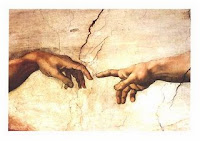
I’d like to go back to the question of why Christians prefer novels set in America. Is it because it was the “good old days,” safe and clean, with nice little Baptist and Methodist churches who held socials and box lunches? Is it too scary to visit the Church of England, or the Huguenots Church, or worse yet (gulp!) the Catholic Church.
God is able to speak through any time period. People throughout history have gone through the same sort of struggles we do, and sometimes came to the same conclusions despite the name on their church buildings. I’ve noticed that God is giving many authors creative ideas on how to approach difficult periods in time.
For example, if I had to name one period in time I would like to avoid, it would be the Regency period. I have no patience for the repressive nature or societal pressure of that time. Yet, I just read an excellent book called Lady of Milkweed Manor by Julie Klassen set in Regency England. In the story the heroine discovers that there are more important things in life than the opinions of society, things such as sacrificial love and obeying God.
In Siri Mitchell’s A Constant Heart, her heroine has to learn to stay constant in her faith and values despite the preening and debauchery of the Elizabethan court around her.
In Golden Keyes Parson’s novel, In the Shadow of the Sun King, her French Huguenot heroine learns that she battles not so much against the flesh and blood of the French Catholics, but against a spiritual enemy. She also finds surprising help at the hands of a Catholic nun with a compassionate heart.
My book is set in the medieval period. Many people don’t like this time because of its “dark” nature. However, my character longs for a true relationship with God despite the hypocrisy and corruption in the church around her. Seeing her heart, God leads her months away from her home in England to a unique Italian convent where she is able to develop the relationship with Him that she so desires.
For example, if I had to name one period in time I would like to avoid, it would be the Regency period. I have no patience for the repressive nature or societal pressure of that time. Yet, I just read an excellent book called Lady of Milkweed Manor by Julie Klassen set in Regency England. In the story the heroine discovers that there are more important things in life than the opinions of society, things such as sacrificial love and obeying God.
In Siri Mitchell’s A Constant Heart, her heroine has to learn to stay constant in her faith and values despite the preening and debauchery of the Elizabethan court around her.
In Golden Keyes Parson’s novel, In the Shadow of the Sun King, her French Huguenot heroine learns that she battles not so much against the flesh and blood of the French Catholics, but against a spiritual enemy. She also finds surprising help at the hands of a Catholic nun with a compassionate heart.
My book is set in the medieval period. Many people don’t like this time because of its “dark” nature. However, my character longs for a true relationship with God despite the hypocrisy and corruption in the church around her. Seeing her heart, God leads her months away from her home in England to a unique Italian convent where she is able to develop the relationship with Him that she so desires.
There are many ways in which God can speak to us. I am very excited that He is moving in fresh ways through new authors with unique voices who aren’t afraid to branch out and tackle tough issues that have faced the body of Christ throughout history.

I'm with you, Dina! One thing I'm thoroughly convinced of is that there's no "safe and clean" portion of history. People are always going to be people, and the powers and principalities are always going to be trying to lure them from God. Now, I think there are times in history when people ignore that, so those forces don't have to work so overtly.
ReplyDeleteHere's to braving the "unpopular" eras! And hoping and praying yours finds the audience it needs.
Things are looking pretty hopeful right now. I've gotten even more requests for full manuscripts from publishers.
ReplyDelete